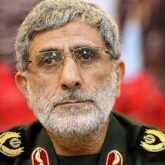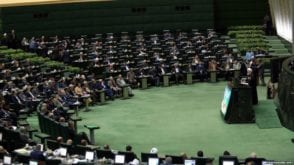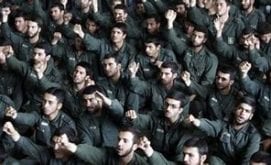CHRI – Use of Solitary Confinement Not Supported Under Iranian law
Key Findings:
- Civil rights activists have filed a lawsuit in Tehran against those who order or enforce solitary confinement in Iran’s detention centers and prisons
- The practice of placing detainees in prolonged solitary confinement is routinely used in Iran to isolate and weaken detainees in order to extract false “confessions”
- Iranian law does not recognize solitary confinement as a means of punishment
- There is no legal authority for solitary confinement; Iran’s Supreme Administrative Court ruled in 2004 that regulations allowing suspects to be held in solitary were unlawful
- Solitary confinement is routinely carried out by Iran’s Islamic Revolutionary Guards Corp’s and the Intelligence Ministry, without oversight or accountability
- Solitary confinement is primarily used during the interrogation and investigation stage, and is usually reserved for political opponents, dissidents, prisoners of conscience, and activists
On March 1, 2021, a group of civil rights activists appeared before the Judiciary Services Office in Tehran to file a suit against those who order or enforce solitary confinement in Iran’s detention centers and prisons, bringing to the fore public discussion in Iran of a longstanding practice that the UN has labeled torture.
The practice of placing detainees in prolonged solitary confinement is widespread in Iran. It is routinely used during the interrogation stage to isolate detainees and to weaken them psychologically in order to extract information and false “confessions.”
In their joint legal petition to the court, the activists, many of whom are former political prisoners who were themselves put in solitary confinement during their detention, stated:
“In accordance with domestic and international regulations, holding suspects in solitary confinement is a violation of the laws and Constitution of the Islamic Republic and a manifestation of torture and mistreatment noted in Articles 570 and 579 of the Islamic Penal Code. Therefore, we seek judicial action against those who enforce solitary confinement as well as superiors who order it.”
The petition continued: “Despite peaceful protests and humanitarian actions to put an end to holding suspects in solitary confinement, the practice is continuing, even though none of the laws require it.”
Its signatories, as reported by the “National-Religious” Telegram channel on March 1, 2021, include: Narges Mohammadi (human rights activist), Faezeh Hashemi (political activist), Farangis Mazloum (civil rights activist), Abolfazl Ghadyani (political activist), Mohammad Ali Amouei (political activist), Zia Nabavi (political activist), Jafar Panahi (film director), Saeed Madani (sociologist), Mahmoud Beheshti (teachers’ rights activist), Hamid Assefi (political activist), Ahmadreza Haeri (political activist), Koorosh Zaeim (political activist), Ashkan Razavi (political activist), Khosrow Seif (political activist), Siavash Hatam (political activist), Majid Mosafer (political activist), Milad Fadaei (journalist), Jila Baniyaghoub (civil rights activist), Bahman Ahmadi Amouei (civil rights activist), Farshad Ghorbanpour (journalist), Rassoul Bodaghi (teachers’ rights activist), Mohammad Karimi (political activist), Ebrahim Allahbakhshi (Gonabadi Sufi), Arash Keykhosravi (human rights lawyer), Akbar Amini Armaki (political activist), Zahra Towhidi (political activist), Alireza Khoshbakht (political activist).
No Legal Authority in Iran to Impose Solitary Confinement
There are no current laws or regulations in Iran that condone solitary confinement as a form of punishment for any reason. Article 524 of the current Code of Criminal Procedure, last amended in 2015, does not recognize solitary confinement as a means of punishment even for convicted prisoners.
Article 524 states: “If the prisoner commits a disciplinary offense, one of the following punishments can be chosen as deemed appropriate and applied after a judge’s approval: a) Transfer from a training and employment facility to an enclosed or semi-enclosed prison; b) Denial of visitation for up to three sessions; c) Denial of furlough for up to three months; and d) Denial of recommendation for pardon or temporary release for up to six months.”
There is also no legal authority for carrying out such a punishment. Iran’s Supreme Administrative Court, which oversees the actions of the state, ruled on January 18, 2004, that Note 4 to Article 169 of the State Prison Regulations, which allowed suspects to be held in solitary confinement for up to one month, was unlawful and declared it null and void.
This decision was based on Article 36 of Iran’s Constitution, which states that the “passing and execution of a sentence must be only by a competent court and in accordance with law,” Article 39, which forbids “all affronts to the dignity and repute of persons arrested, detained, imprisoned, or banished,” and Article 579 of the Islamic Penal Code, which prohibits punishment of a convicted person “harsher than what was ordered in the verdict or punishes him to what is not ordered in the verdict.”
The court’s decision stated:
“Given that the legislature has not made any stipulation regarding solitary confinement, and that its implementation deprives the prisoner of the opportunity to talk to other prisoners, and causes him/her mental anguish, it is deemed a clear example of excessive punishment in the enforcement of imprisonment. Therefore Note 4 of Article 169 of the State Prison Regulations regarding the use of solitary confinement for up to a month as a form of punishment is ruled a violation of the law and beyond the jurisdiction of the Prison Management Council… and is annulled.”
As one lawyer in Iran put it, “Any judicial order to transfer a detainee or prisoner to solitary confinement would be arbitrary, unlawful and extrajudicial.”
In addition, holding suspects in solitary confinement is a violation of paragraphs 1, 6, 7 and 9 of the Law on Respect for Legitimate Freedoms and Protection of Citizenship Rights (2004) and considered an example of torture subject to punishment under Articles 570 and 579 of the Islamic Penal Code.
Moreover, based on Article 9 of Iran’s Civil Code, international treaties signed by Iran are as valid as domestic laws. Accordingly, as a signatory to the International Covenant on Civil and Political Rights, the Islamic Republic must observe its Article 7, which states: “No one shall be subjected to torture or to cruel, inhuman or degrading treatment or punishment.”
In a November 2009 interview, former Judiciary Chief Mahmoud Hashemi Shahroudi stated that solitary confinement was against the Islamic Republic’s regulations.
Solitary Used by Revolutionary Guards and Intelligence Ministry to Interrogate Political Detainees
Nevertheless, at present, solitary confinement is routinely carried out by Iran’s security agencies—both the Islamic Revolutionary Guards Corp’s (IRGC) Intelligence Organization, which is under the authority of Iran’s supreme leader, Ali Khamenei, and the Intelligence Ministry, which operates under the authority of President Hassan Rouhani.
These security agencies have exclusive and absolute control over designated sections of the prisons, in which they exert physical and psychological pressure on individuals in solitary confinement without any independent supervision, oversight or accountability.
In cases involving national security-related charges (which are typically issued against activists, dissidents and human rights defenders), the judicial authorities act under the command of the security establishment and refer to themselves as “security judges,” yielding unlimited and extraordinary powers. They sometimes isolate individuals in solitary confinement for more than a year. These officials answer only to superiors in the security establishment and rarely adhere to the country’s own laws and regulations.
Solitary confinement cells are primarily used during the interrogation and investigation stage. There is a long and documented history of detainees being tortured and forced to make false, self-incriminating statements during this period. Such “confessions” are routinely broadcast on state television in order to discredit the detainees and support their subsequent conviction based on the “evidence” of these statements.
In some cases, prisoners have also been taken out of public wards and into solitary confinement for further interrogations, despite objections from lawyers.
Solitary confinement is usually reserved for political opponents, dissidents, prisoners of conscience and civil rights activists. In recent years, however, it has also been used for individuals held in connection with financial corruption. In addition, this practice has been used in police stations for years against individuals involved in violent crimes such as murder or armed robbery.
Legal experts in Iran note that a lack of public awareness and sensitivity toward such practices in Iran facilitates the continued widespread use of solitary confinement.
To augment the current lawsuit, experts note that it would also be appropriate to submit petitions to Parliament’s Article 90 Committee, which is authorized by the Constitution to investigate citizens’ complaints against the executive, legislative and judicial branches of state, as well as to President Rouhani, who is responsible for the implementation of the Constitution.
In 2017, then-imprisoned rights activist Narges Mohammadi wrote a letter addressed to members of the Iranian Parliament’s Article 90 Committee calling for an end to solitary confinement. Published by the Defenders of Human Rights Center, it stated: “…under the laws and regulations of the Islamic Republic of Iran, and based on the opinion of the Supreme Administrative Court, keeping suspects in solitary confinement is not only illegal but also a clear violation of the constitutional and basic human rights and dignity of prisoners, instituted by the security and judicial agencies without rules or limits.”
 Shabtabnews In this dark night, I have lost my way – Arise from a corner, oh you the star of guidance.
Shabtabnews In this dark night, I have lost my way – Arise from a corner, oh you the star of guidance.


